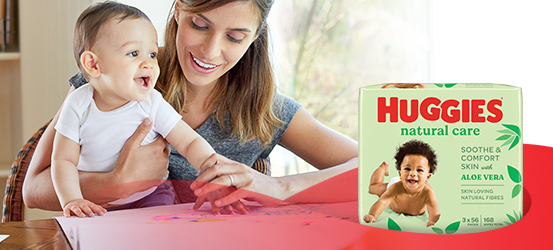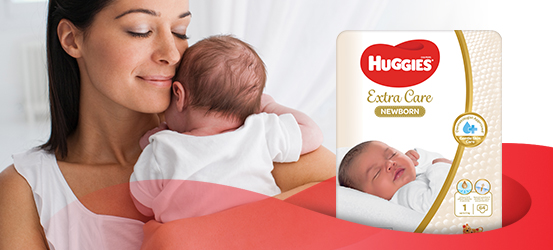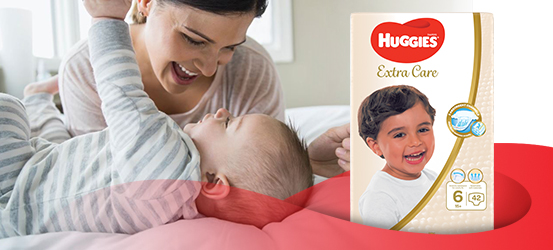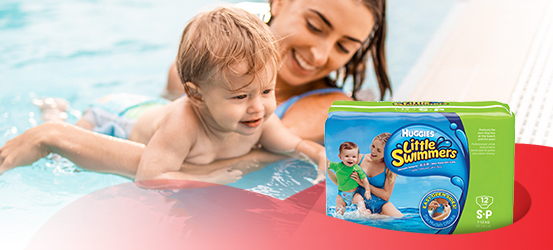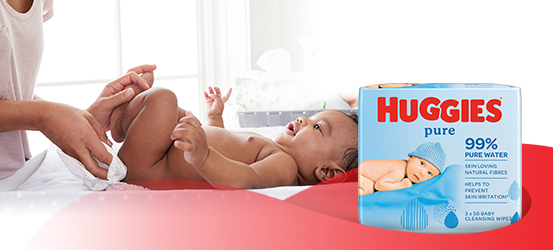For many women, mother guilt begins the moment their pregnancy is confirmed. So what’s behind these feelings? Why, along with all the other emotions a new mother experiences, does guilt follow us through our journey of motherhood
A big part of the guilt problem is not feeling that instantaneous unconditional mother’s love that you were expecting. Although most women do feel an immediate bond upon giving birth to their baby, many don’t.
Great expectations
Unrealistic expectations are a big part of the guilt problem. Women who have been successful in their careers and life before parenthood expect that they will be ‘successful’ as parents. Sometimes the normal ups and downs of parenthood are enough to shake their confidence.
Sally – a mother of one agrees. “I had a good job in banking before I became a mom, and I was very good at it,” she explains. “I’m a person who likes clear delineation between right and wrong and, as motherhood is so full of grey areas, it often leaves me confused and questioning my choices.”
Motherhood ‘myths’ can add to this confusion and pressure. Some of the most common culprits suggest that ‘good’ babies sleep all night, that ‘good’ mothers have ‘good’ babies and that mothers should instinctively know what their baby wants from birth.
When we can’t live up to these impossible expectations, it’s no wonder that we begin to feel that there must be something wrong or lacking in our ability as a mother and this can then lead to feelings of failure and guilt, and can have a significant impact on our emotional well-being.
Julie Ann Barnhill, author of Motherhood: The Guilt That Keeps On Giving (Harvest House Publishers), talks about the trap of the ‘should haves’ – I should have stayed at home, I should have disciplined differently and more “Sometimes we respond to ‘should haves’ as though they are absolute commandments – ‘thou shalt’, and ‘thou shalt not’.” This type of thinking can really heap on the guilt.
“The main thing that makes me feel guilty is when I need time for myself,” says Tanya, mother of four. “I feel that I shouldn’t need it and should relish staying with my children all day every day.”
So who says you should do this or you shouldn’t feel like that? As difficult as it can be to find the time, make sure you continue to exercise and spend time with friends - without your baby - not to mention working in a date night from time-to-time with your partner. And drop the guilt because taking time for yourself, experts say, can be a benefit to both you and your child. It’s important for each person to have an outlet and a way of recharging and re-energising to be the best parent you can be.
So look closely at these expectations, which can stem from your family or culture, and think about whether they reflect your own values. They may well be appropriate, but they can also be destructive. Choose for yourself which ones truly matter to you, which don’t, and which are worth ignoring, even though ignoring them may bring disapproval from your community or family.
Maha chose to ignore external pressure when she made a decision to teach her son to self-settle from an early age. “I know it was the right thing to do for the whole family,” she reflects, “But having a pro-co-sleeping mother-in-law and lots of people willing to throw stats at you about the crushing psychological impact of leaving a baby to cry can be disturbing and make it hard to hold your ground.”
Like self-settling, the decision to return to work seems to attract a range of expectations from everywhere and everyone. Returning to work is one of the biggest guilt inducers a new mom can face. And though it’s understandable to want to be at home with your baby, experts say children are remarkably resilient and can adapt and thrive in many different types of family arrangements.
The reality is that over the past decade -- and especially today, given the economy -- many families have come to rely on the income of both partners. You need to do what’s right for you – in your family life.
Doing what’s right often means earning enough money to keep a family clothed, sheltered, and fed, but it also means making sure that, as a parent, you are personally fulfilled.
Some moms are better mothers when they are working part or full time – it gives them an outlet and sense of purpose both inside and outside of the home, and helps them to feel whole. And wholeness makes for a better parent .
Giving your partner some of the responsibility doesn’t mean you have to feel guilty about it. Working out a division of labour between you and your partner, if you have one, or asking for help from friends and family, can make it easier for you to relax and enjoy being a parent.
Time to shift the guilt
The transition into motherhood is a time of great adjustment. Prepare for this transition by talking with your partner about what kind of parent you would both like to be. Be realistic about what you will be able to achieve, and accept help from others instead of trying to manage everything on our own. Most importantly, “Don’t always put yourself last. Looking after yourself is looking after your baby!”
“Guilt will always be a part of the mothering landscape, but it doesn’t have to dominate it.” – Julie Ann Barnhill
Managing Mother GuiltMother guilt is not something to conquer or eliminate, but there are many things that we can do to manage these challenging feelings when they arise. Here are some suggestions:
-
Admit you can’t do it all – no one can!
-
When you find yourself thinking ‘I should…’, ask yourself, ‘Who says I should?’
-
Give yourself permission to laugh at yourself!
-
When you are feeling overwhelmed by feelings of guilt, take a deep breath and try to put things in perspective.
-
Forgive yourself – let go of resentment you may hold for failing to achieve what you believe you should have as a mother.
-
Compliment another mother – look for opportunities to ease someone else’s guilt!
“No mom has it all together. We’re all dealing with loose ends when it comes to motherhood and our children. Some of us are just better at keeping up appearances, that’s all.” – Julie Ann Barnhill
Looking after you
It’s easy to come up with hundreds of excuses for not finding time for yourself, but it’s amazing how much more patience and energy you have for parenting when you do. Here are some ideas to get you started:
-
Hand the kids over to someone else for half an hour and have a relaxing soak in the bath – no interruptions!
-
Listen to your favourite music. It might be to relax or to dance around the lounge – doesn’t matter!
-
Get physical! Whatever your preferred method of being active (swimming, jogging, the gym, dancing, etc.) set some time aside to work out your body and switch off your mind.
-
Think about what is was that you enjoyed doing before becoming mom, and make the time to do it!
-
Laugh! Whether it’s a movie, a comic or a joke, have a good belly laugh – it really is the best medicine!
Note: Feelings of guilt can sometimes be part of postnatal depression. If you are concerned, seek professional advice.
To see a list of Julie Ann Barnhill’s books:
Julie Ann Barnhill Booklist
For more information see Motherhood or Parenting














